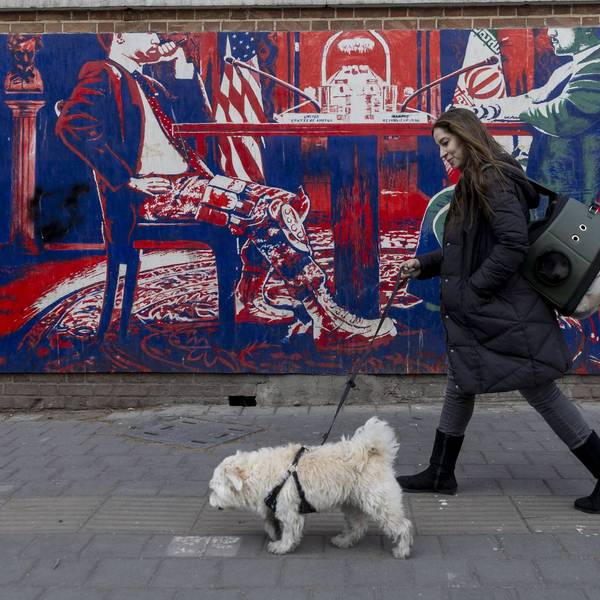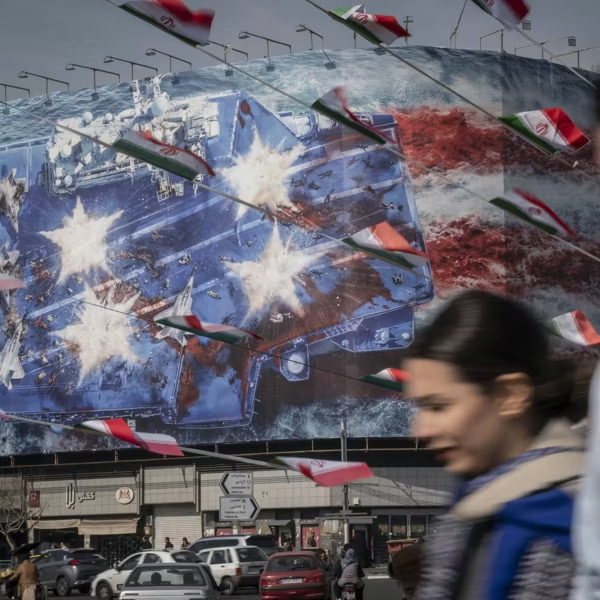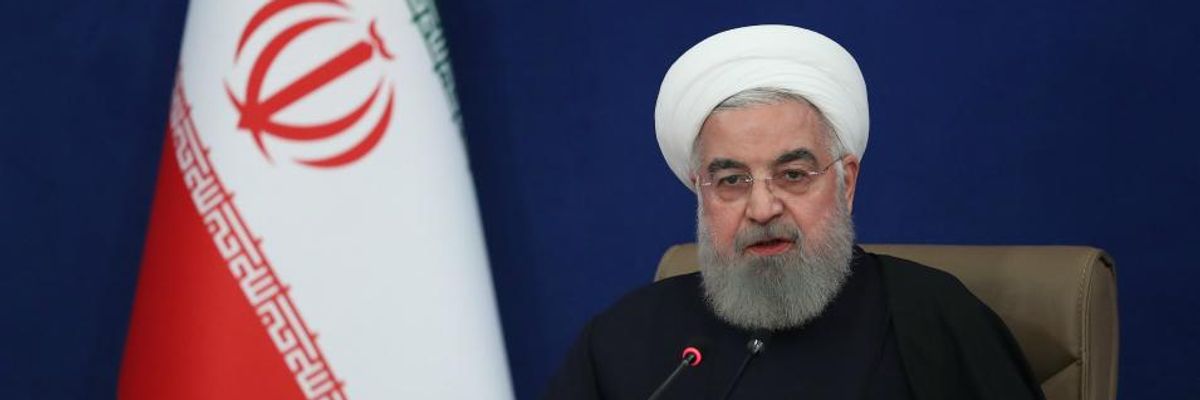Iranian President Hassan Rouhani on Monday committed to returning to the 2015 nuclear accord without even an hour of delay if U.S. President-elect Joe Biden fulfills his promise to do so, a vow welcomed by observers as an encouraging sign that the two nations could soon be on a path to restoring diplomatic relations torn to shreds by the Trump administration.
Speaking at a televised news conference in Tehran, Rouhani made clear that Iran is seeking a return to "the situation as it was in 2017"--prior to U.S. President Donald Trump's unilateral violation of the nuclear deal and reimposition of crushing sanctions--and will not accept any preconditions for rejoining the landmark agreement.
"I believe that the era of the economic war has come to an end."
--Iranian President Hassan Rouhani
"The U.S. tried for months to include the [ballistic] missiles program and we told them it's non-negotiable. They tried for months to include regional issues as well. They were all discussed and rejected," the Iranian president said. "What can be on the table is that everyone will return to their full commitments."
"Either everyone will implement the JCPOA as it is or they don't," Rouhani added, referring to the nuclear deal's formal name, the Joint Comprehensive Plan of Action. "If they do, we will too."
Rouhani went on to say that Iran, in turn, will not demand as a precondition for restoration of the deal any compensation for the damage inflicted by U.S. sanctions, which have crippled the Middle East nation's ability to respond to the coronavirus pandemic.
"I believe that the era of the economic war has come to an end," said Rouhani. "This war cannot go on, not because Trump has been defeated and Mr. Biden has won. Even if Trump had won, he would be forced to do away with sanctions."
Sina Toossi, senior research analyst with the National Iranian American Council, called Rouhani's remarks "an important signal that his preference is to have a speedy return to the JCPOA by all sides."
During the presidential race, Biden vowed to revive the Iran nuclear accord, the signature foreign policy achievement of the Obama administration. The Trump administration, meanwhile, has continued piling on new sanctions and taking a militaristic posture toward Iran in line with the White House's disastrous so-called "maximum pressure" strategy, which has repeatedly pushed the two nations to the brink of all-out war.
Since Biden's victory last month, U.S. warhawks--including New York Times columnist Thomas Friedman--have been pressuring the president-elect to use the Trump administration's current sanctions as "leverage" to extract additional concessions from Iran at the negotiating table, instead of swiftly returning to the deal without preconditions.
Writing for Responsible Statecraft last week, former CIA analyst Paul Pillar warned that such an approach would be ineffective and potentially dangerous.
"There will be room for wider discussions and negotiations with Iran in the future," Pillar argued. "But to get to that land of broader negotiations will first require the United States to live up to agreements it already has made, rather than trying to wring advantage out of a patently failed policy."




